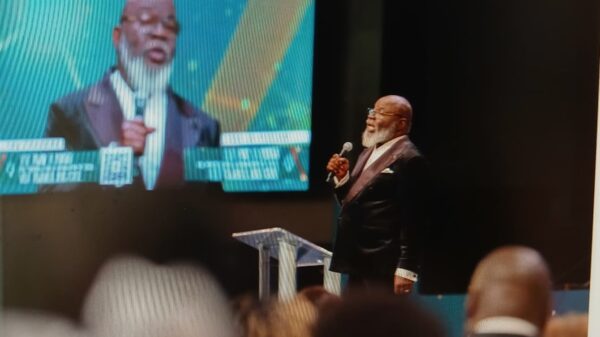
AUSTIN — The Texas Supreme Court ruled Friday that ERCOT, the operator of Texas’ power grid, is a government entity, granting the organization immunity to lawsuits stemming from 2021′s deadly winter storm.
The Supreme Court ruled 5-4 on immunity, reversing a previous judgment from a Dallas state appeals court. Justices dismissed lawsuits from San Antonio’s municipal electric utility and a private energy developer.
The court ruled unanimously that ERCOT is a governmental entity, something the organization has waffled on in recent legal challenges. For instance, it claimed it was not a government entity when it was sued over Texas’ government open records law. ERCOT officials claimed it fell under government protection under the suits that were decided Friday.
The Electric Reliability Council of Texas runs the country’s sole power grid contained wholly within a single state. It encompasses roughly 75% of the state and maintains a grid providing electricity to 90% of Texas’ population. It is a government created nonprofit corporation that is regulated by the Public Utility Commission.
Because of this, ERCOT should be immune to suit because “it prevents the disruption of key governmental services, protects public funds, and respects separation of powers principles,” Chief Justice Nathan L. Hecht wrote for the majority.
“ERCOT’s governmental nature is demonstrated most prominently by the level of control and authority the state exercises over it and its accountability to the state,” Hecht’s ruling stated.
The ruling stemmed from lawsuits from San Antonio’s municipal electric utility CPS Energy and a private power plant developer. CPS Energy sued following 2021′s deadly winter storm, alleging that mishandling of power pricing during the storm led to the utility being short-changed $18 million.
The justices also dismissed a lawsuit from a Dallas-based private energy developer Panda Power Funds that alleged it lost billions of dollars after making investments based on flawed energy demand projections ERCOT issued.
The ruling shuts the door on any further lawsuits against ERCOT over energy pricing during the winter storm, which brought the state’s electric grid to the brink of a total collapse, left nearly half of Texan households without power for days and led to the deaths of more than 200 people.
The ruling was 9-0 on questions related to the jurisdiction of the suit and ERCOT’s status as a “government unit.” However, the court was divided 5-4 over ERCOT’s sovereign immunity.
Writing for the dissenters, Justices Jeff Boyd and John Phillip Devine noted that the ruling greatly expands the principles of sovereign immunity and sidesteps the Legislature, which they argue should have the authority to determine whether ERCOT should be immune — something the body has not done.
“[T]he Court declares that a purely private corporation, Electric Reliability Council of Texas, Inc. (ERCOT), may shield itself under the Sovereign’s cloak of immunity as a legislatively authorized entity,” read the dissent. “Yet unlike any other entity previously granted immunity by this Court, no statute designates ERCOT as a part of the government.”
They contemplated that the Legislature could “correct the Court’s error” by passing legislation declaring ERCOT subject to lawsuits.
A statement from CPS Energy spokeswoman Dominique D. Ramos said the utility was disappointed with the ruling but would continue to work with ERCOT.
“While CPS Energy is disappointed by the Texas Supreme Court’s decision in our case against ERCOT, we recognize that the Court needed to weigh in on this previously unsettled issue and are gratified that four justices recognized our legal position as we seek relief for our customers in the aftermath of Winter Storm Uri,” the emailed statement said.
Meanwhile, ERCOT provided a statement praising the ruling.
“The Court’s careful consideration of these significant legal issues allows us to continue to focus on our core State responsibilities on ensuring a reliable grid for Texans,” the statement said.
This story, originally published in The Dallas Morning News, is reprinted as part of a collaborative partnership between The Dallas Morning News and Texas Metro News. The partnership seeks to boost coverage of Dallas’ communities of color, particularly in southern Dallas- at the bottom.









You must be logged in to post a comment Login